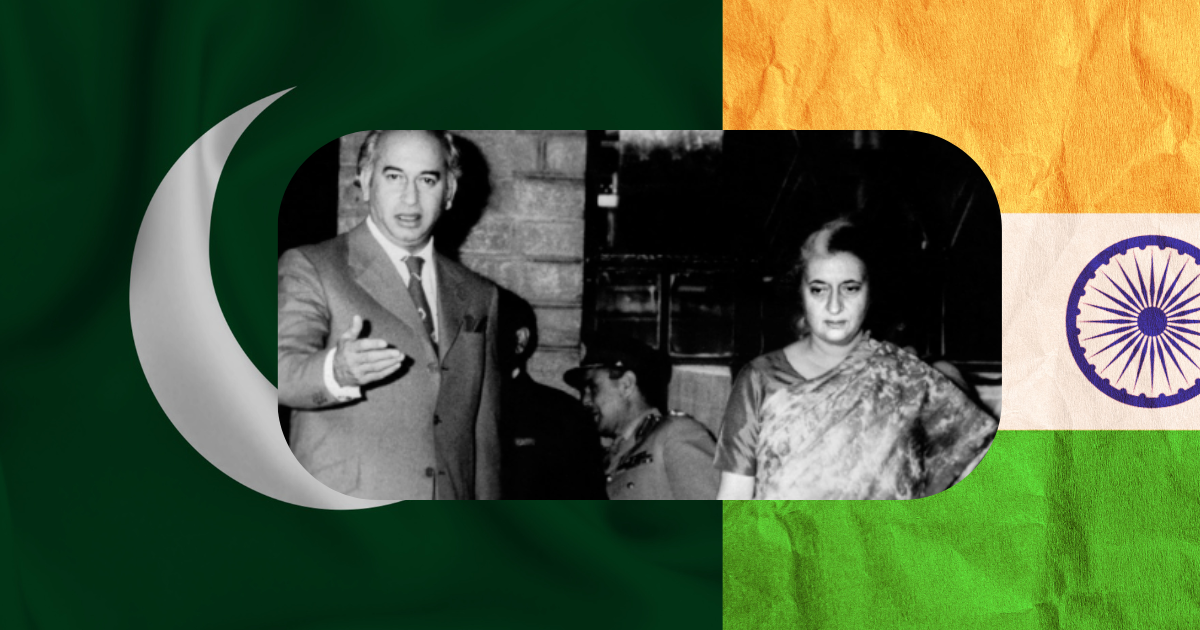Defence Minister Khawaja Asif said on Thursday that the Simla Agreement between Pakistan and India is no longer valid after India breached the Indus Waters Treaty (IWT).
Tensions between the two countries worsened following the April 22 attack in Pahalgam, located in Indian-occupied Kashmir. In response, India put the IWT on hold. As a countermeasure, Pakistan announced it would suspend all bilateral agreements with India — including the Simla Agreement.
Pakistan also took further steps by closing the Wagah border, halting all trade with India, and introducing other measures in response to the situation.
Defence Minister Khawaja Asif has said that the Simla Agreement — signed between Pakistan and India after the 1971 war by Zulfikar Ali Bhutto and Indira Gandhi — is no longer valid after India violated the Indus Waters Treaty (IWT).
The Simla Agreement had required both countries to settle disputes bilaterally and not take unilateral actions. It also established that the ceasefire line from the 1971 war would be known as the Line of Control (LoC).
Speaking to Geo News, Asif stated that the IWT does not allow any country to pull out of it alone — all decisions must be made jointly. He said if India has chosen to act unilaterally, then Pakistan has the right to reconsider its agreements as well.
He added that the Simla Agreement, unlike the IWT, is not overseen by any international body like the World Bank. Therefore, if India ignores it, the LoC could legally revert to being just a “ceasefire line,” as defined under the 1948 UN resolution.
“As far as Pakistan is concerned, the sanctity of the Simla Agreement no longer exists because of India’s actions,” Asif said. “The condition that both sides resolve issues bilaterally doesn’t apply anymore.”
A senior official from Pakistan’s Foreign Office clarified on Thursday that no official decision has been made to cancel any bilateral agreements with India, including the Simla Agreement.
The clarification came after Defence Minister Khawaja Asif, in an earlier interview, suggested that the Simla Agreement was no longer valid following India’s recent move to suspend the Indus Waters Treaty (IWT). Speaking on Geo News’ show Aaj Shahzeb Khanzada Kay Sath, Asif said his comments reflected his personal opinion in response to India’s actions.
“I said that if India can disregard the IWT, then the same logic should apply to the Simla Agreement,” Asif explained. “The Foreign Office has no involvement in my statement. I shared my personal view — and I believe it should become our official stance.”
The Simla Agreement, signed in 1972 after the 1971 war, commits both India and Pakistan to resolving all disputes through peaceful, bilateral talks. It also lays out a framework for normalizing relations and avoiding unilateral actions.
However, Pakistan maintains that India violated the agreement in 2019 when it revoked Article 370 of its Constitution, removing the special status of Jammu and Kashmir. This change allowed outsiders to settle in the region and purchase property — a move Pakistan says aims to alter the Muslim-majority population of the disputed territory, in breach of the Simla Accord.
